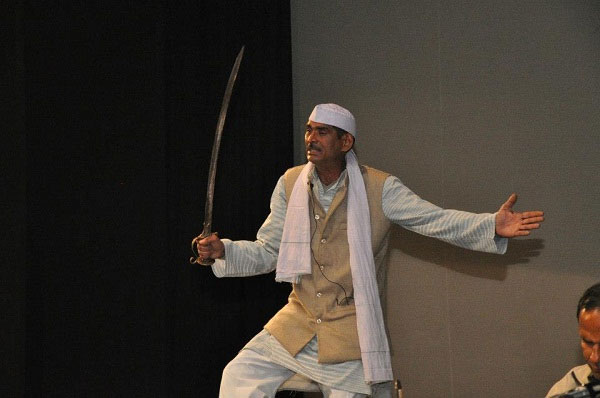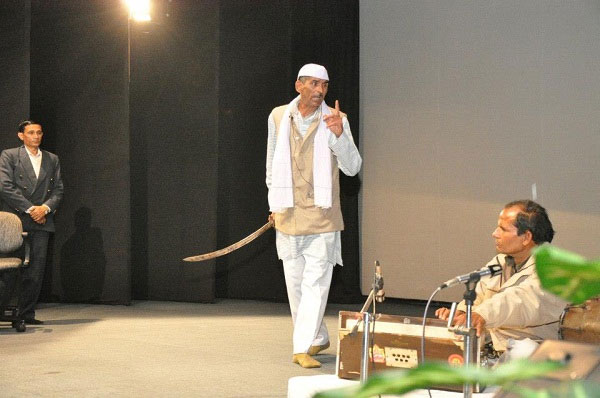
REVIVAL AND LIVE PERFORMANCE OF A DEAD ART FORM
The Western Uttar Pradesh rendition of Alha was nearly lost for the past 15 years. In 2012 – 2013 we could find only one person, Mr. Vinod Kumar, who could sing it in its original format. This was the first ever complete live performance of this dead art form after all these years at USI, New Delhi, held on 27th Nov’2013.
My assistant, Sanjeev Kumar worked tirelessly and organized a practice session of a few days at his village near Parikshitgarh before this final performance over a very august gathering.
Alha is sung in various languages, especially Bundeli, Awadhi, Bhojpuri, Kannauji etc. There was a separate rendition of Alha which was sung in one of the languages of Western Uttar Pradesh and was an important part of culture of West UP, Delhi and related parts of Haryana. People completely stopped singing this rendition for the past few years and it became one of the many aspects of local culture which are vanishing because of rapid urbanization and influx of mass media.
Out of the 52 original stories of Alha, today only 33 survive in West UP, the rest having been lost forever. We are happy that whatever survives has been recorded and preserved and is being subjected to a proper scientific study through a fellowship program of United Service Institution of India.
The Alha rendition originated between 1165 and 1192 AD and is a contemporary of another famous rendition, the Prithviraj Raso. Though the later got partly adapted into authoritative Indian history because it was indirectly linked to the advent of the Delhi Sultanate, the Alha rendition remained mostly neglected. The Alha rendition is based on the adversarial relationship between the Chandel and Banafar Rajputs of what was later called Bundelkhand on the one hand and Prithviraj Chauhan of Delhi on the other.




